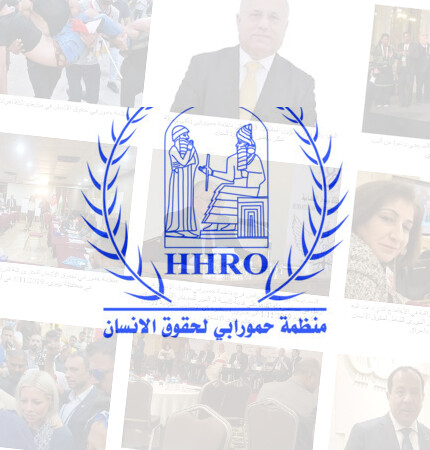 Facebook
Facebook
 Twitter
Twitter
 YouTube
YouTube
 Telegram
Telegram
نيويورك تايمز/ صفحة الرأي.. كيف ننقذ العراق من الحرب الأهلية
28 ديسمبر 2011بغداد
يقف العراق اليوم على أعتاب كارثة. حافظ الرئيس أوباما على وعده أثناء حملته الانتخابية بإنهاء الحرب هنا، ولكنها انتهت بطريقة لم يكن أحدا في واشنطن يرغب بها. فالجائزة، التي ظن الكثير من الجنود الأمريكيين أنهم يحاربون من أجلها، كانت تأسيس ديموقراطية قادرة على أداء مهامها ودولة غير طائفية، بيد أن العراق اليوم يمضي في الاتجاه المعاكس: نحو ديكتاتورية طائفية تحمل في طياتها نذر حرب أهلية مروعة.
منذ الانتخابات العراقية في 2010 ونحن نشهد جهود إخضاع الدولة لحزب الدعوة الذي ينتمي إليه رئيس الوزراء نوري كامل المالكي وتقويض استقلالية القضاء وتهديد المعارضين وتفكيك المؤسسات المستقلة التي كانت تسعى إلى دعم الانتخابات النظيفة ومحاربة الفساد. كل هذا حدث في مرحلة الربيع العربي، وبينما الدول العربية الأخرى تخلع حكامها الديكتاتوريين وتسعى نحو الديموقراطية. وكان لدى العراق الفرصة ليبرهن، للمرة الأولى في الشرق الأوسط المعاصر، أنه يمكن تداول السلطة السياسية سلميا ما بين الخصوم السياسيين بموجب انتخابات نزيهة، ولكن بدلا من هذا، أصبح العراق ساحة للحرب ما بين الطوائف المختلفة بحيث أعاقت السياسات القائمة على الهوية جهود التنمية الديموقراطية.
نحن قيادات القائمة العراقية، التحالف السياسي الذي فاز بالعدد الأكبر من المقاعد في انتخابات 2010 والذي يمثل أكثر من ربع مجموع الشعب العراقي. ونحن لا نعتبر أنفسنا سنة أو شيعة وإنما نحن عراقيون تشمل قاعدتنا الانتخابية مختلف أنحاء العراق. ونحن نتعرض الآن لمطاردات وتهديدات من قبل السيد المالكي الذي يسعى لإخراجنا من الحياة السياسية في العراق وإلى تأسيس دولة ديكتاتورية قائمة على الحزب الأوحد.
على مدار الأسابيع الماضية ومع انتهاء الوجود الأمريكي العسكري، تحركت قوى عسكرية أخرى لملأ الفراغ، فأحاطت قوات الأمن التابعة للسيد المالكي بمنازلنا ومكاتبنا في المنطقة الخضراء في بغداد، حيث قام بفرض الحصار على قائمتنا ، وفعل هذا بمباركة من القضاء الذي تم تسييسه ومسؤولي تنفيذ القانون الذي أصبحوا بمثابة امتداد لمكتب المالكي الشخصي.
واتهم المالكي السيد طارق الهاشمي نائب الرئيس العراقي بالإرهاب، وسعى إلى طرد السيد صالح المطلق نائب رئيس الوزراء، كما سعى إلى التحقيق مع واحد منا، وهو السيد رافع العيساوي، بمزاعم صلته بالمتمردين.، وقد اتخذ المالكي هذه الخطوات في أعقاب عودته من واشنطن، مما أعطى العراقيين انطباعا خاطئا بأن الولايات المتحدة قد منحته الضوء الأخضر للقيام بهذا.
وبعد أن طالب السيد جو بادين نائب الرئيس الأمريكي في 6 ديسمبر كافة الأطراف بالحفاظ على وحدة الحكومة، هدد المالكي بتشكيل حكومة تستبعد القائمة العراقية وغيرها من الأصوات المعارضة تماما. وفي الوقت نفسه، يرحب المالكي بانخراط الميليشيا الشيعية المدعومة من إيران والمعروفة باسم "عصائب أهل الحق" في العملية السياسة، وهي المجموعة التي قام قادتها باختطاف وقتل خمسة جنود أمريكيين وقتل أربعة رهائن بريطانيين في 2007.
لم يكن يتحتم أن تمضي الأمور هكذا. فقد تحمل الشعب العراقي فترة التحول الدموية المؤلمة بعد سقوط نظام صدام حسين أملا في مستقبل أفضل. وعقب انتخابات 2010، شعرنا بأن أمامنا فرصة حقيقية لنؤسس عراقا جديدا يمكنه أن يصبح مثلا يحتذى به في المنطقة. وكنا بحاجة للولايات المتحدة لحماية العملية السياسية ومنع الانتهاكات الدستورية والمساعدة في تطوير المؤسسات الديموقراطية.
ودعما للاستقرار، وافقت القائمة العراقية على الانضمام إلى حكومة وحدة وطنية بعد اتفاقية تقاسم السلطة التاريخية التي تم التوصل لها منذ عام في أربيل. ولكن، وعلى مدار أكثر من عام يرفض المالكي تنفيذ هذه الاتفاقية، بل ويسعى إلى تكريس المزيد من السلطات في يده. وكان من المفترض وفقا لاتفاقية أربيل أن يترأس واحد منا، وهو السيد إياد علاوي، مجلسا مقترحا للسياسات، ولكنه رفض هذا المنصب لعدم تضمنه أية صلاحيات بعد أن رفض المالكي مشاركة طرف آخر في سلطة صنع القرار.
وعقب انتخابات 2010، تولى المالكي منصب وزير الداخلية، ووزير الدفاع، ووزير الأمن القومي (وفوض بعدها حقيبتي الدفاع والأمن القومي لموالين له دون موافقة البرلمان). وللأسف، استمرت الولايات المتحدة في دعمها للمالكي بعد تنصله من اتفاقية أربيل، وفي تعزيز قوات الأمن التي تعمل دون رقابة ديموقراطية.
وتعمل الولايات المتحدة الآن مع العراقيين لعقد مؤتمر وطني آخر لحل الأزمة، ونحن نرحب بهذه الخطوة ونعلن استعدادنا لحل مشكلاتنا بطريقة سلمية على أن تكون اتفاقية أربيل هي نقطة البداية، ولكن على مكتب السيد المالكي أولا التوقف عن إصدار تعليماته إلى وحدات الجيش والقيام بتعيينات عسكرية أحادية الجانب والسعي إلى التأثير على القضاء، ويجب أن يكف مستشاره للأمن الوطني يده عن السيطرة الكاملة على جهاز المخابرات العراقية وادارة الأمن القومي، والتي من المفترض أن تكونا مؤسستين مستقلتين ولكنهما تحولتا إلى امتداد لحزب الدعوة التابع للمالكي، وأن يتوقف الموالون لحزب الدعوة عن السيطرة على الوحدات الأمنية التي تشرف على المنطقة الخضراء وتقوم بتهديد المعارضين السياسيين.
يجب أن توضح الولايات المتحدة بجلاء أن تشكيل حكومة لتقاسم السلطة هو السبيل الوحيد المتاح أمام العراق وأن الدعم الأمريكي للمالكي يتوقف على تنفيذه لاتفاقية أربيل وحله للكيانات غير الدستورية التي يحكم الآن من خلالها. كما يجب أن تكون المساعدات الأمريكية لقوات الجيش والشرطة العراقية وأجهزة المخابرات متوقفة على أن كون هذه الكيانات ممثلة للدولة بأكملها وليس لطائفة واحدة أو حزب واحد.
على مدى سنوات، سعينا إلى التحالف الاستراتيجي مع الولايات المتحدة لمساعدتنا في بناء العراق الذي نحلم به، كدولة وطنية ليبرالية علمانية تضم مؤسسات ديموقراطية وثقافة ديموقراطية. ولكن الانسحاب الأمريكي قد يخلف وراءه عراق كنا نخشى من ظهوره، فنرى دولة يحمي فيها الجيش ذو الميول الحزبية نظاما طائفيا يسعى لتحقيق مصالحه الخاصة دون اعتبار للشعب أو الدستور، وتهادن فيه السلطة القضائية من بيدهم مقاليد الأمور، وتستحوذ فيه نخبة فاسدة على ثروات العراق بدلا من استثمارها في تنمية البلاد.
نحن سعداء بعودة جنودكم الشجعان إلى أوطانهم في فترة الأعياد، ونتمنى لهم السلام والسعادة، ولكن العراق قد أصبح الآن مرة أخرى على شفا الهاوية، ونحن نطلب من القادة الأمريكيين تفهم حقيقة أن منحهم الدعم غير المشروط للمالكي يدفع العراق نحو حرب أهلية.
ما لم تتخذ الولايات المتحدة خطوات سريعة للمساعدة في تشكيل حكومة وحدة، فسيمضي العراق إلى مصير محتوم.
إياد العلاوي، رئيس تحالف العراقية، شغل منصب رئيس الوزراء في 2004/2005.
أسامة النجيفي، رئيس مجلس النواب العراقي.
رافع العيساوي، وزير المالية العراقي.
How to Save Iraq From Civil War
By AYAD ALLAWI, OSAMA AL-NUJAIFI and RAFE AL-ESSAWI
Baghdad
New york Times
December 27, 2011
IRAQ today stands on the brink of disaster. President Obama kept his campaign pledge to end the war here, but it has not ended the way anyone in Washington wanted. The prize, for which so many American soldiers believed they were fighting, was a functioning democratic and nonsectarian state. But Iraq is now moving in the opposite direction — toward a sectarian autocracy that carries with it the threat of devastating civil war.
Since Iraq’s 2010 election, we have witnessed the subordination of the state to Prime Minister Nuri Kamal al-Maliki’s Dawa party, the erosion of judicial independence, the intimidation of opponents and the dismantling of independent institutions intended to promote clean elections and combat corruption. All of this happened during the Arab Spring, while other countries were ousting dictators in favor of democracy. Iraq had a chance to demonstrate, for the first time in the modern Middle East, that political power could peacefully pass between political rivals following proper elections. Instead, it has become a battleground of sects, in which identity politics have crippled democratic development.
We are leaders of Iraqiya, the political coalition that won the most seats in the 2010 election and represents more than a quarter of all Iraqis. We do not think of ourselves as Sunni or Shiite, but as Iraqis, with a constituency spanning the entire country. We are now being hounded and threatened by Mr. Maliki, who is attempting to drive us out of Iraqi political life and create an authoritarian one-party state.
In the past few weeks, as the American military presence ended, another military force moved in to fill the void. Our homes and offices in Baghdad’s Green Zone were surrounded by Mr. Maliki’s security forces. He has laid siege to our party, and has done so with the blessing of a politicized judiciary and law enforcement system that have become virtual extensions of his personal office. He has accused Iraq’s vice president, Tariq al-Hashimi, of terrorism; moved to fire Deputy Prime Minister Saleh al-Mutlaq; and sought to investigate one of us, Rafe al-Essawi, for specious links to insurgents — all immediately after Mr. Maliki returned to Iraq from Washington, wrongly giving Iraqis the impression that he’d been given carte blanche by the United States to do so.
After Vice President Joseph R. Biden Jr. urged all parties to maintain a unity government on Dec. 16, Mr. Maliki threatened to form a government that completely excluded Iraqiya and other opposition voices. Meanwhile, Mr. Maliki is welcoming into the political process the Iranian-sponsored Shiite militia group Asaib Ahl al-Haq, whose leaders kidnapped and killed five American soldiers and murdered four British hostages in 2007.
It did not have to happen this way. The Iraqi people emerged from the bloody and painful transition after the fall of Saddam Hussein’s regime hoping for a brighter future. After the 2010 election, we felt there was a real opportunity to create a new Iraq that could be a model for the region. We needed the United States to protect the political process, to prevent violations of the Constitution and to help develop democratic institutions.
For the sake of stability, Iraqiya agreed to join the national unity government following a landmark power-sharing agreement reached a year ago in Erbil. However, for more than a year now Mr. Maliki has refused to implement this agreement, instead concentrating greater power in his own hands. As part of the Erbil agreement, one of us, Ayad Allawi, was designated to head a proposed policy council but declined this powerless appointment because Mr. Maliki refused to share any decision-making authority.
After the 2010 election, Mr. Maliki assumed the roles of minister of the interior, minister of defense and minister for national security. (He has since delegated the defense and national security portfolios to loyalists without parliamentary approval.) Unfortunately, the United States continued to support Mr. Maliki after he reneged on the Erbil agreement and strengthened security forces that operate without democratic oversight.
Now America is working with Iraqis to convene another national conference to resolve the crisis. We welcome this step and are ready to resolve our problems peacefully, using the Erbil agreement as a starting point. But first, Mr. Maliki’s office must stop issuing directives to military units, making unilateral military appointments and seeking to influence the judiciary; his national security adviser must give up complete control over the Iraqi intelligence and national security agencies, which are supposed to be independent institutions but have become a virtual extension of Mr. Maliki’s Dawa party; and his Dawa loyalists must give up control of the security units that oversee the Green Zone and intimidate political opponents.
The United States must make clear that a power-sharing government is the only viable option for Iraq and that American support for Mr. Maliki is conditional on his fulfilling the Erbil agreement and dissolving the unconstitutional entities through which he now rules. Likewise, American assistance to Iraq’s army, police and intelligence services must be conditioned on those institutions being representative of the nation rather than one sect or party.
For years, we have sought a strategic partnership with America to help us build the Iraq of our dreams: a nationalist, liberal, secular country, with democratic institutions and a democratic culture. But the American withdrawal may leave us with the Iraq of our nightmares: a country in which a partisan military protects a sectarian, self-serving regime rather than the people or the Constitution; the judiciary kowtows to those in power; and the nation’s wealth is captured by a corrupt elite rather than invested in the development of the nation.
We are glad that your brave soldiers have made it home for the holidays and we wish them peace and happiness. But as Iraq once again teeters on the brink, we respectfully ask America’s leaders to understand that unconditional support for Mr. Maliki is pushing Iraq down the path to civil war.
Unless America acts rapidly to help create a successful unity government, Iraq is doomed.
Ayad Allawi, leader of the Iraqiya coalition, was Iraq’s prime minister from 2004-5. Osama al-Nujaifi is the speaker of the Iraqi Parliament. Rafe al-Essawi is Iraq’s finance minister.


